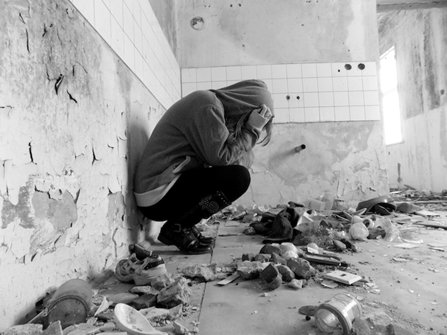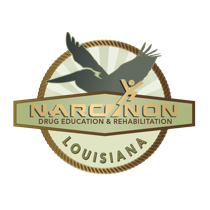Warning Signs

The first thing that probably comes to your mind when I say “drug addict” is the homeless guy in torn up clothes holding an “anything helps” sign by the freeway. It’s easy to think “Man, how can someone get to that point without getting help first? Doesn’t he have any family that care about him?” Then you continue about your day without thinking twice about him.
The truth is, although it doesn’t take long to get to the point of homeless Joe, there are signs of addiction most turn a blind eye to and next thing they know, a friend or loved one is stuck in a hole they can’t and won’t get out of on their own. Especially with young men and women, a lot of times family and friends will see “odd behavior” as teen angst or as the person just being moody. Not even considering (or just not wanting it to be true) that they could be in the depths of full blown addiction to some sort of mind altering substance. There is no script or uniform for addicts—just the cold hard truth that underneath forced smiles, they feel alone and are suffering.
For those who want to help a loved one they think is using, it is easy and common for them to feel helpless or responsible, especially parents. They’re likely to spend a lot of their time asking themselves where they went wrong or if there was anything they should have done differently. The truth is an addict’s decision to begin using and continue to do so is just that, THEIR DECISION. There are things you can look for that will give you a head start, or even better, put a dead stop to a person’s path down the road to self-destruction:
Probably one of the first things you’ll be able to pick up on is lying. Granted there could be a number of reasons someone might feel they need to lie, but if you notice someone is lying about small things like where they were or who they were with at any given time of day, or even where their money is going, you can almost be certain they’re trying to cover something up, especially regarding money and drugs.

You can look for extremes in behaviors. “Normal” routines are thrown off quick with drug use. Things like a person sleeping too much or not at all, poor hygiene or in some cases of speed use, being overly hygienic, which can also show in a person’s living space (Bedrooms/Bathroom/Living room). If their eating habits have changed—either eating double what they normally eat, or not eating anything at all—this can be a huge indicator, as a person’s appetite is suppressed or increased while using drugs. Any noticeable change in a person’s daily routine can be a huge red flag and should be questioned…
Mood swings may also be a thin defining line between someone who is “dabbling” and someone who is reliant on mind altering substance(s). A person’s varying moods could be caused from a number of things. Extreme anger or irritability could very likely be linked to the person needing his next fix, coming down, or lacking sleep. On the other side of the spectrum, bursts of extreme happiness, moments where the person has tons of energy and an out of the box way of thinking are sure fire signs they are not thinking or operating how they normally would.
If a person is asking for money more often than usual and when questioned for what, they stumble on their words or have multiple reasons and are antsy, it’s possible you are unknowingly being asked to aid them in getting their fix. Really dig to find what the money is needed for and if they’re antsy, ask what the urgency is.
If you are able to spot some of these signs and want to really find out whether or not a loved one is using, the next step to take would be to obtain a urine sample at random. You will be able to tell right away if when asked for the sample, they are instantly nervous. If they say they “Can’t pee right now” wait with them until they’re ready. And ensure when you take it, they are not tampering with the sample.

No one wants to find out that their friend, son, daughter, mom, dad, cousin is using drugs. No one wants to see someone close to them get past the point of no return either. Even though a person’s decision to use drugs is their own, there are things you can do to prevent it from getting out of hand, because it can and will happen. FAST. Especially if there isn’t an intervening factor. Don’t let someone else’s demise rest on your conscience, but just as well, don’t be afraid to ask questions and make it your business. Drug use can very well be a matter of life or death and not doing anything about a suspicion early on can spin out of control if not caught early on.


